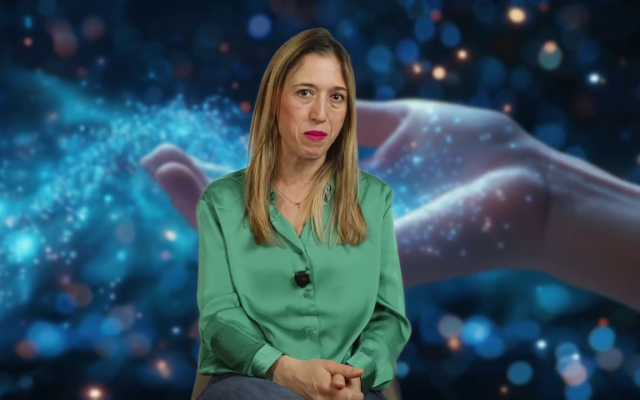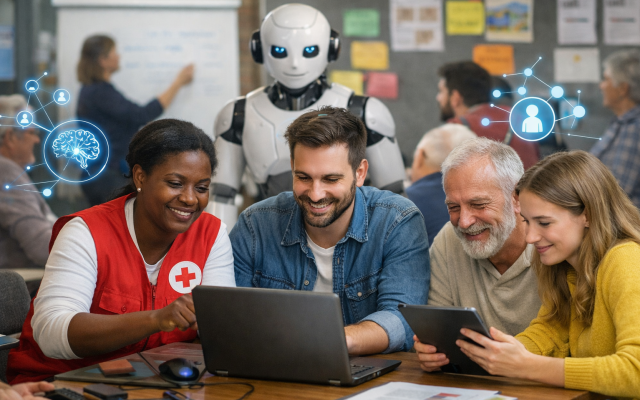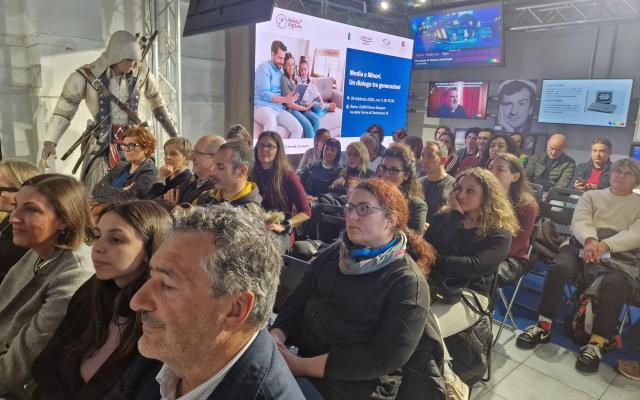Today, our phyrtual journey amongst the “Our School” Professors takes us to Tuscany to meet Antonio Barsottini, the professor teaching a “Lab on Construction Science and Technology” at the Istituto Carrara-Nottolini-Busdraghi in Lucca. Prof. Barsottini graduated with a degree in Civil Engineering and received a certification to teach Physics. He has held labs for students in first- and second-degree secondary schools on engineering and other STEM subjects. Moreover, he also holds professional training courses on CAD and GIS and is an ECDL-ICDL evaluator.
As usual, we share a short video in which Stefania presents herself and then an interview with Ilaria Gaudiello, who coordinates the works of the open source community of teachers.
This is the fourteenth instalment of Professors in “Our School.”.
INTERVIEW
Antonio, your lessons transform students into true geographers conducting on-site surveys and mapping. Can you tell us more about these lab activities and the most significant project activities you have conducted with your students?
As a technical-practical teacher, I try to involve students in learning experiences in real contexts, guiding them to an active re-elaboration of theoretical concepts an provide personal contributions. I use all available tools for didactic activities, from the simplest to the most technological, and drive the students to discover why they were created and the ideas underlying their invention. I invite all of my students to reason on available resources and treasure the experience of others, exploiting the sharing potential of digital tools.
I believe that free information inspired by the “open source” approach is an invaluable didactic tool both in terms of content, which can be of very high quality and free, and in terms of mode based on open sharing and voluntary contributions.
In terms of curricular and PCTO activities, I have held labs on 3D modelling with CAD, 3D printing and local information systems, trying to connect purely technical aspects with opportunities to learn more and grow curious about issues.
This year, your interest in active and inclusive pedagogy has brought you into contact with the Fondazione Mondo Digitale “Our School.” Together with other teachers with complementary profiles, you have conceived and developed a course on service learning to promote local areas. How do geography and civic education blend into this?
Amongst the objectives of the Agenda 2030 on cities and sustainable communities, there are the issues of inclusive urbanisation, integrated planning and access to green public areas. In order to work on these targets, my “Our School” workgroup is developing a learning unit entitled “Open Paths – Open Tracks” to create a service-learning course involving associations supporting the disabled, local administrations and school communities. We started with our baggage of experience as part of STEM courses and inclusion and worked on activities related to the didactic use of the OpenStreetMap geographical database that we learned about through Wikimedia.
Student activities will address the development and mapping of touristic routes with direct surveying on points of interest (historical sites, natural sites, cultural sites, etc.) and a database of all architectural barriers that may limit their enjoyment. We aim to promote local heritage by sharing accessible routes, developing forms of active citizenship to promote the removal of obstacles and the full enjoyment of the local areas.
Our project will use OpenStreetMap and other interfaces including Street complete (a tool for adding notes to maps on toponomy, accessibility, and type of tourism), Wheelmap (open project conceived by Sozialhelden to produce a global mapping of areas accessible to wheelchair users), Mapillary (a platform for sharing geo-localised 3D photos). Moreover, we are also studying activities that could promote local experiences, such as the use of Senzabarriereapp, an app developed by the “Lucca senza barriere ODV” Association, and we are on the lookout for other new ideas that contribute to enriching the project.
If you had the opportunity to develop a larger scale project, exchanging skills and good practices with “Our School,” what would your next project be?
I have experimented with many activities and different contexts, all of which are related to my education. I have participated in stages at large enterprises, professional collaborations for civil works development, taught scientific and technical subjects in secondary school and held specialist training courses. Each has been an opportunity to learn didactic and organisational skills, which I would like to apply in the field of didactic innovation.
I would be happy to grow, both as a person and teacher, exchanging ideas and experiences with other colleagues who have had different experiences and work iin local and social contexts that I do not know about.



